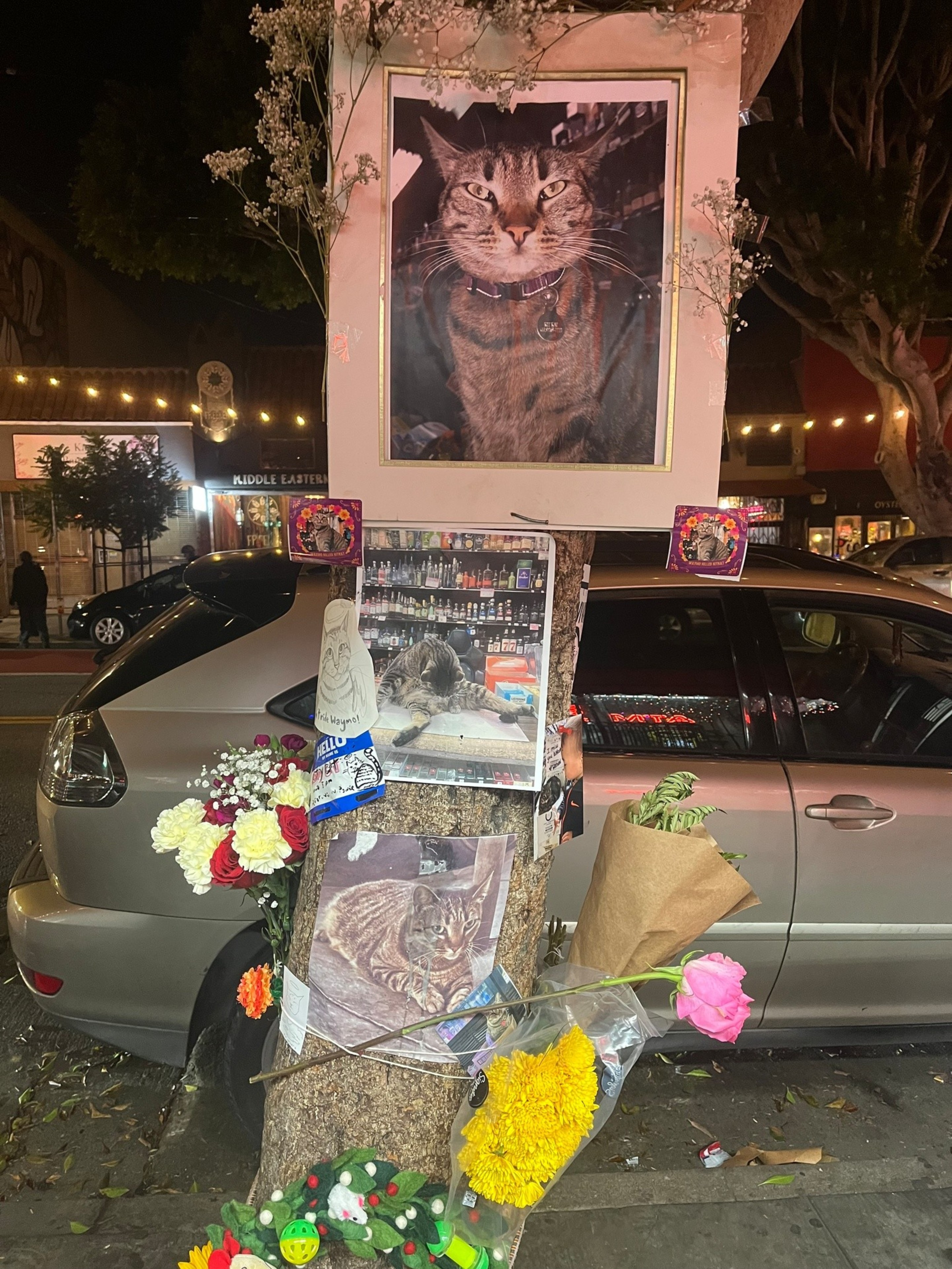It was an unseasonably warm day in October 2024 when New York state authorities euthanized a pet squirrel (and Instagram celebrity) named Peanut. The squirrel’s demise set off viral outrage over government overreach and condemnation from figures including Elon Musk and President Donald Trump. It also inspired a cryptocurrency, $PNUT, that reached a market cap of $2 billion.
So when a Waymo ran over a San Francisco bodega cat named KitKat last month — almost exactly one year after the Peanut affair — it felt like deja vu (opens in new tab). Crypto bros rushed to capitalize.
The story had the same ingredients: a cute animal, outrage, a political angle, and national media interest. Could a commemorative KitKat crypto achieve the same success? Within days, numerous $KITKAT coins hit the market. Many of their boosters claimed in since-deleted X posts that the currencies had “early $PNUT vibes.”
“None of this would be possible or relevant without $PNUT as the anchor in everybody’s minds,” said a crypto influencer who goes by Warren (opens in new tab) and (opens in new tab)is a lead promoter for the most successful KitKat coin.
The rival coins vied for legitimacy. The people who minted them called Randa’s Market, the Mission District convenience store where KitKat lived, to ask the owners for their blessing. When Warren “met” the store owner’s son Daniel Zeidan in an X space, he convinced him to get involved.
Warren, 30, withheld his last name for fear of retribution. It’s no surprise — memecoin wars can get personal, and he says he has received death threats in the past. After all, this is an arena where value depends on trust, and the teams behind warring coins are constantly trying to convince their followers that the other guys are scammers.
Warren insists his motivation is justice for the Zeidans.
“I decided to get involved because if anybody deserves to be the steward of a KitKat coin, it’s the family,” Warren said. “Money is not my primary driver.”
To be crystal clear: Anybody getting involved in cryptocurrency at any level is trying to make money. Warren lives near Washington, D.C., and had never heard of the Zeidans before reading about KitKat in the news. Until they sell their holdings in the currency, the owners’ profits consist solely of “creator rewards,” or fees paid out by the platform Pump.fun (opens in new tab). Zeidan announced (opens in new tab) Wednesday on X that 20% of revenue would go to the 10-person promotion team he leads.
After Warren got Zeidan on board, the competition had to step up their game. Within days, there was only one other real contender: a coin backed by two notorious crypto influencers with nearly 1 million followers between them.
These influencers paid an acolyte to fly from Michigan to San Francisco, adopt a cat from a shelter, and drop it off at Randa’s Market to replace KitKat, according to the emissary’s firsthand account on X (opens in new tab). This appeal for favor fell flat as soon as the Zeidan family got wind of it, and the attempted gifter had to swing back and pick up the cat. (He has since fallen out with the influencers who bankrolled his trip; the status of the cat he adopted is unknown.)
“It was weird,” Zeidan said.
Soon after, the creators of the competing coin pulled the rug: They dumped their holdings, and the coin’s value plummeted. In response to a disappointed victim, one of the owners tweeted, “I’d gladly rug you twice.” (The Standard reviewed a screenshot of the since-deleted post.)
Warren’s coin is still hanging on, with a market cap of just under $1 million (down 80% from its $5.2 million peak on Halloween). Zeidan said he’s not worried about being scammed.
“It has the characteristics of a failed hype cycle, in which case the opportunity for a rug pull has passed, with the hype behind the story dying out,” he said. “The coin may very well fizzle out from here.”
Experts agree. Crypto founder Alex Masmej, who gained fame for creating a token based on his own identity (opens in new tab), said $KITKAT’s dreams of $PNUT riches are unlikely to come true.
“Peanut just went immensely more viral,” Masmej said.
He explained that in the world of memecoins, online attention translates directly to dollar value.
“You can almost get your news from memecoins,” he said. “I have some friends working on a startup that wants to deploy coins after viral events.”
This idea brings the logic of memecoins to its natural conclusion. People buy coins based on viral attention, so why not mint a coin for every viral story? After all, Trump’s coin has skyrocketed in value (and added billions to the president’s wealth (opens in new tab)). It’s a caricature of an internet in which attention is constantly monetized, but in crypto (unlike in advertising), there is no good or service attached. In the best case, it’s honest gambling; in the worst, it’s fraud.
As for the $KITKAT wars, Zeidan and Warren have won and can now enjoy their spoils: a coin slowly declining in value and $225,000 in creator rewards so far. Zeidan pledged (opens in new tab) 40% of this revenue to animal welfare organizations.
